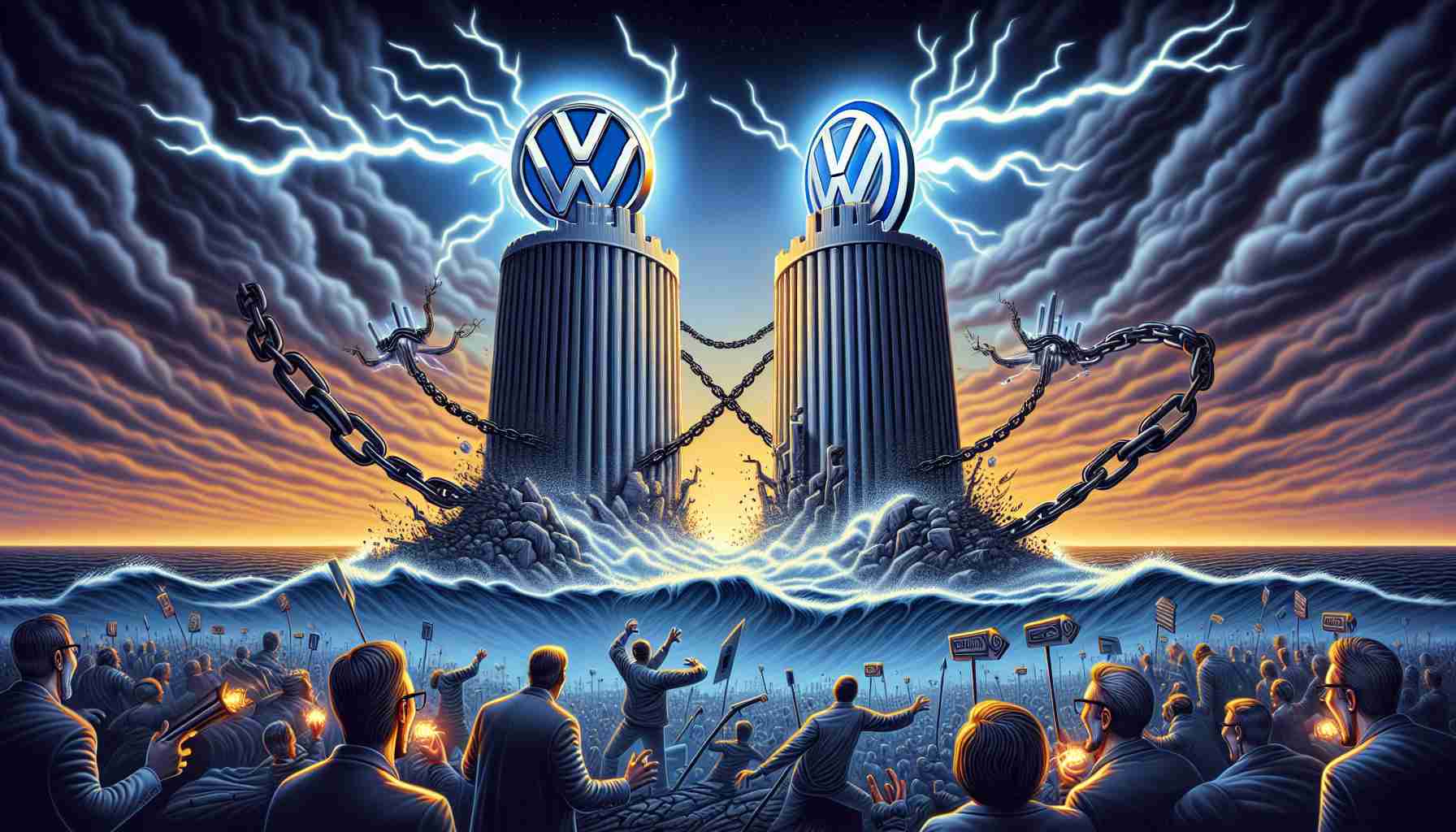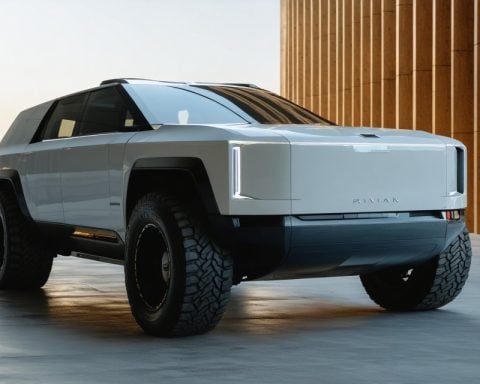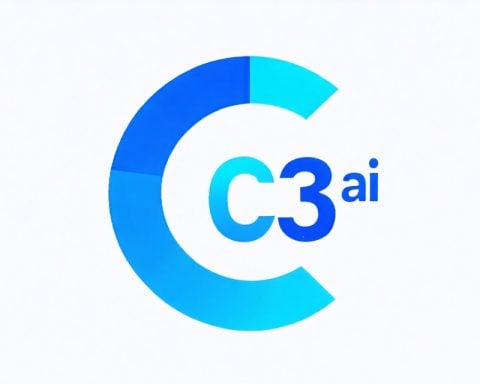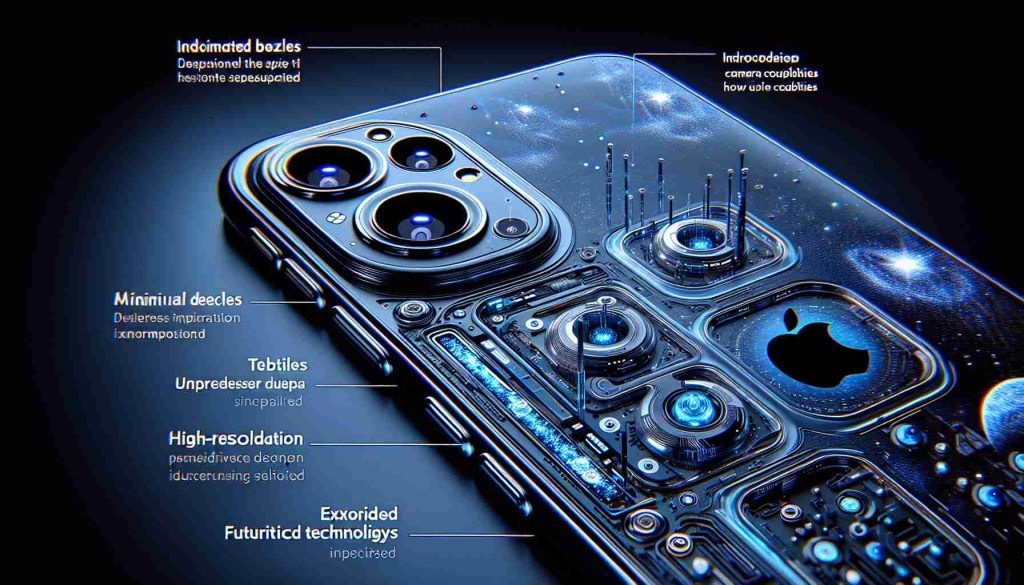In a groundbreaking partnership, Rivian Automotive and Volkswagen Group are reinforcing their commitment to revolutionize the electric vehicle industry. The German automotive giant has decided to elevate its stake in Rivian’s innovative technology, increasing its investment ceiling to a staggering $5.8 billion. This marks a significant rise from the initial $5 billion agreement penned in June, with a substantial portion of the funding tied to specific performance targets.
Rivian’s leadership expressed enthusiasm about the finalized joint venture with Volkswagen, seeing it as a pivotal leap towards mainstream electric vehicle adoption. This collaboration will bolster Rivian’s mission to deliver top-tier products that cater to evolving customer needs.
The alliance, set to commence on November 12, focuses on leveraging Rivian’s cutting-edge electrical architecture and software to launch the economically appealing R2 vehicle line by early 2026. These R2 models will be priced starting at $45,000, significantly more affordable than Rivian’s current offerings. Initial production will occur in Normal, where plant expansions are already in progress to accommodate the new model line.
As part of this venture, both companies assigned executives to manage the collaboratively operated independent entity, which is headquartered in Palo Alto, alongside additional undisclosed locations in North America and Europe. In a mere 12 weeks, the collaboration has produced a drivable demonstration vehicle, showcasing the significant potential of their joint efforts.
Following this announcement, Rivian’s stock experienced a notable 9.5% surge, although the company’s shares have seen a significant decline over the past year since their public debut.
The Hidden Impact of Automaker Alliances on the Global Stage
In recent developments, the strategic collaboration between Rivian Automotive and Volkswagen Group marks more than just an expansion into the electric vehicle market; it signifies a burgeoning trend of transformative partnerships within the automotive industry. As conglomerates consolidate resources and expertise, the repercussions are felt beyond the boardroom, stretching into the lives of people, communities, and entire nations.
An Intricate Web of Innovation
While Rivian and Volkswagen’s collaboration focuses on producing more economically viable electric vehicles by 2026, there’s an underlying shift that these alliances generate—one of technological innovation and job creation. For instance, the establishment of new production facilities not only fosters economic growth in local communities but also invokes a ripple effect, enhancing job opportunities and skill development in the region. In places like Normal, Illinois, where Rivian’s plant expansions are underway, these developments could rekindle industrial vigor and provide residents with a brighter economic outlook.
Interesting Facts and Controversies
Electric vehicle partnerships are not merely about increasing market share. Interestingly, collaborations often aim to standardize technology across the industry. This includes unifying charging standards and enhancing battery efficiencies, which could directly affect consumers by simplifying their transition to electric vehicles. However, this push for standardization raises questions about monopoly concerns and limiting consumer choices, as alliances between giants like Rivian and Volkswagen could potentially stifle smaller competitors.
One of the prevalent controversies lies in the environmental impact of expanded production facilities. While electric vehicles promise greener alternatives to traditional cars, the manufacturing processes and the sourcing of materials for batteries remain a contentious topic. Are we truly moving towards sustainable practices, or are we replacing one problem with another?
Advantages and Disadvantages
The advantages of such strategic partnerships are clear: increased technological expertise, the pooling of finances, and a shared goal of market domination lead to innovative products at potentially lower costs. Consumers stand to gain from advanced vehicles without a corresponding hike in prices, making it an attractive proposition as families consider their transportation futures.
Conversely, these alliances can lead to over-dependence on specific technologies, limiting the diversity of automotive solutions available to the public. Additionally, the focus on profit margins may inadvertently sideline more eco-conscious practices, failing to address the broader environmental concerns associated with vehicle production and battery disposal.
Key Questions Answered
What are the long-term impacts of these automotive alliances?
These partnerships are likely to redefine market leaders and shape the future landscape of global transportation industries. By sharing research and development costs, these companies can innovate faster, potentially driving down costs for consumers. However, with this power comes the responsibility to ensure competition remains healthy and technology beneficial.
How do these alliances affect job markets?
They can significantly impact job markets, particularly in regions where manufacturing plants and tech centers are established. The creation of new tech jobs and manufacturing roles can revitalize locales economically, although job displacement in older industries remains a risk that requires mitigated strategies.
For further insights into the evolution of the electric vehicle industry, check out these resources:
Rivian Automotive | Volkswagen Group
Overall, the Rivian-Volkswagen collaboration forebears a fascinating era in transportation, rife with potential benefits and challenges. As these joint ventures become more prevalent, stakeholders worldwide—from policymakers and environmentalists to everyday consumers—must navigate this evolving landscape thoughtfully.





















